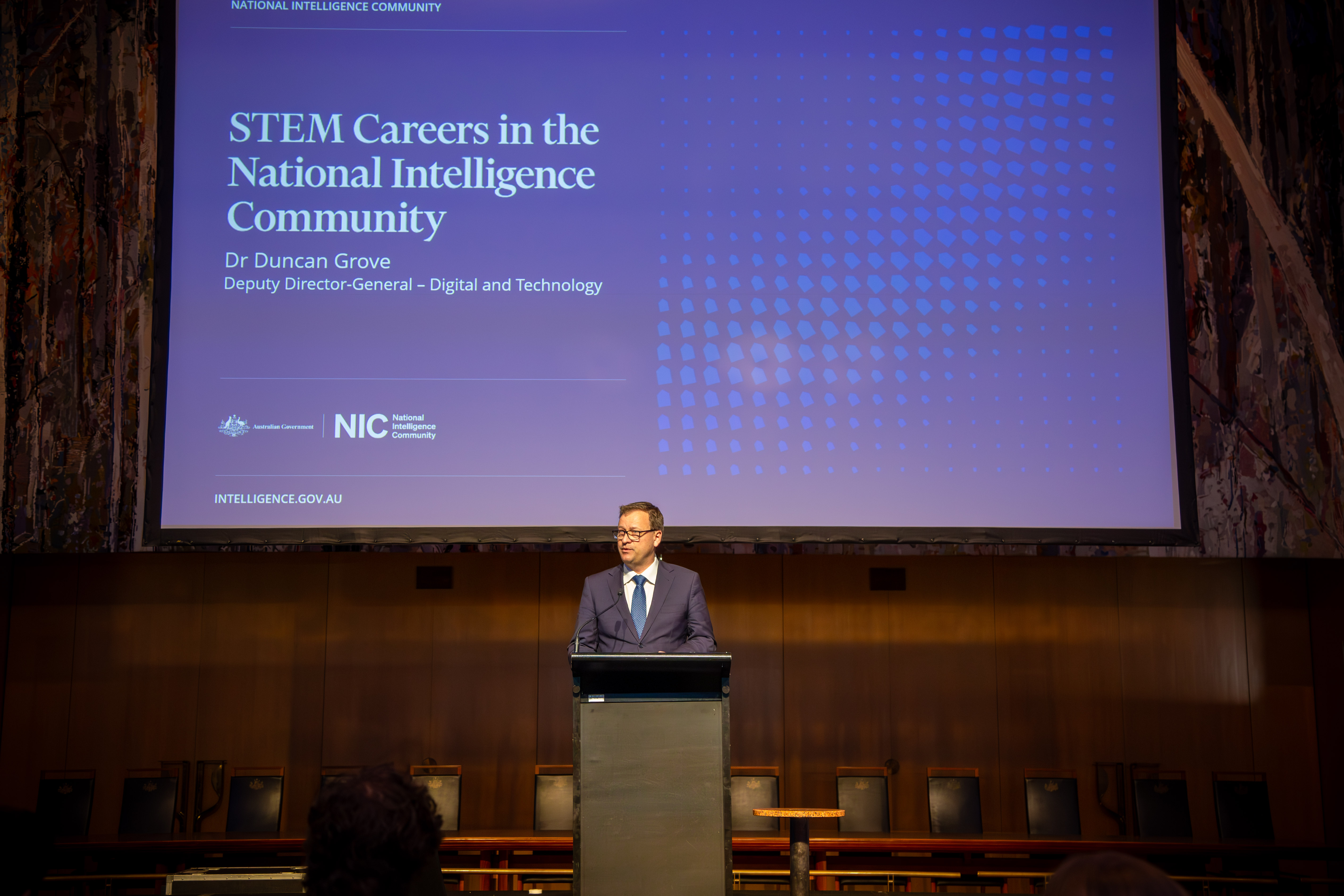Careers in intelligence are “not only tuxedos, vodka martinis and jumping out of aeroplanes,” said Dr Duncan Grove, Deputy Director-General – Digital and Technology at the Office of National Intelligence, when he spoke to aspiring STEM professionals at the Government Scientists Group STEM Expo at Australian Parliament House.
Dr Grove addressed the gathering on behalf of the National Intelligence Community (NIC), sharing his expertise and experiences in science careers within the community, including his own career journey.
“More than 25 years ago I graduated from university with a bachelor’s degree in computer systems engineering – and I thought to myself: what now?,” said Dr Grove.
Dr Grove has worked for a range of government agencies using Science and Technology to enhance national security including at the Defence Science and Technology Group, Department of Foreign Affairs and Trade, Australian Signals Directorate and the Office of National Intelligence.
“As you would know, working on complex science and engineering problems in maths, chemistry, physics or computer science relies on bringing many great minds together,” Dr Grove noted. “In the National Intelligence Community, we bring together diverse groups of people from all walks of life to solve hard problems.”

Dr Grove was one of dozens of speakers from 20 government departments at the Expo, organised by the Office of the Chief Scientist, led by Dr Cathy Foley.
“In most cases, much of the work conducted across the NIC, every hour of every day remains hidden, unless you're directly involved with these efforts,” he explained. “But I’m here today to shine a little bit of light on the sort of STEM careers you can have in the National Intelligence Community.”
He provided examples of intelligence activities involving STEM specialists across the NIC, starting with the Australian Signals Directorate (ASD).
“Recently ASD warned the public about the threat of state-sponsored cyber-attacks to our critical infrastructure,” Dr Grove said. “Thanks to ASD’s programmers, computer scientists, electronic engineers, mathematicians and other technologists, ASD is able to identify these threats and secure our critical infrastructure to keep all of us safe.”
Dr Grove also revealed insights into the “full spectrum of STEM roles” ASIO offers. ASIO recently showcased its ‘chamber of secrets’ – “… a silent anechoic chamber used for testing listening devices.” Alongside technicians working on bug sweeping electronics, ASIO has tech specialists such as engineers developing artificial intelligence tools and data scientists analysing intelligence, protecting Australians from threats to our security.
The wider NIC is also preparing for the largest technological advancement in its history with the introduction of a Top Secret Cloud.
“The TS Cloud will ensure we’re able to securely share and analyse Australia’s most classified data quickly, and at scale. It will also provide new opportunities for the NIC to work safely and securely to leverage artificial intelligence and machine learning,” Dr Grove explained.
Dr Grove emphasised the importance of a diverse workforce, including individuals from various backgrounds, to achieve our mission of serving and protecting the nation.
Across the NIC, there are numerous STEM entry pathways available including cadetships, apprenticeships, graduate roles, and opportunities for experienced professionals.
To learn more about STEM careers across the NIC, visit intelligence.gov.au(Opens in a new tab/window).
21 August 2024